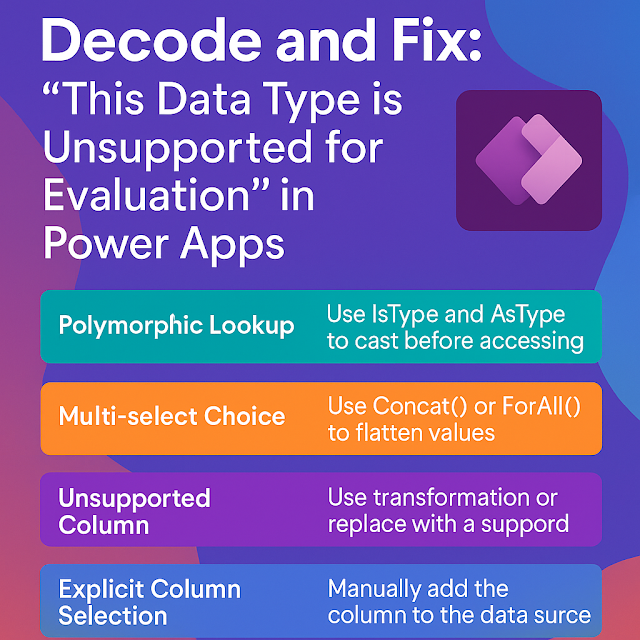Dynamics 365 Field Service : Configure and apply Requirement group templates
In Dynamics 365 Field Service, "Requirement Group Templates" is a powerful feature that allows you to manage complex work scenarios where multiple resources are needed to perform a job together—such as teams of technicians with specific skills, equipment, or roles that must be coordinated for the same job or task.
What Is a Requirement Group Template?
A Requirement Group Template is a predefined setup that defines:
- Multiple resource requirements
- The roles or characteristics needed for each resource
- The time relationships between resources (e.g., working together simultaneously)
- Specific skills, territories, or equipment for each resource
These templates are used to streamline the scheduling of multi-resource jobs, ensuring that the right combination of people is assigned to a work order efficiently.
Why Is It Important?
Without requirement group templates, scheduling jobs that need multiple technicians or specialized coordination becomes time-consuming and error-prone. This feature solves several key challenges:
- Coordinating multiple resources who need to work in sync
- Ensuring that required skills and certifications are met
- Reducing manual scheduling errors
- Automating scheduling with Resource Scheduling Optimization (RSO)
Real-Life Example
Suppose you're a field service provider for large industrial equipment, and servicing a machine requires:
- One senior technician with calibration experience
- One electrician with safety certification
- A crane operator for lifting parts
Instead of manually coordinating these roles each time, you define this configuration once using a Requirement Group Template. Every time this type of work order is created, the system uses the template to schedule all necessary resources together.
How to Configure Requirement Group Templates
Step 1: Enable Requirement Groups
- Go to Field Service Admin > Settings
- Set “Enable Requirement Groups” to Yes
- Step 2: Create a Requirement Group Template
- Navigate to Resource Scheduling > Requirement Group Templates
- Click New to create a new template
- Give it a name (e.g., “Industrial Equipment Maintenance Team”)
- Save the record
Step 3: Add Requirements
- Open the template
- Under Requirement Group Controls, click + New Requirement Group Resource Requirement
- Define each resource role:
- Skill (e.g., Electrical, Calibration)
- Territory
- Time window and duration
- Organizational unit
- Repeat for each role required in the group.
Step 4: Apply the Template to a Work Order
- When creating a new work order, go to the Requirements tab
- Click “Add Requirement Group” and select your template
- The system adds all resource requirements as a group
Scheduling with the Template
When the work order is scheduled:
- The system finds a time when all required resources are available together
- Booking is done for the entire team as a unit
- Rescheduling one affects the others to maintain synchronization
This works seamlessly with the Schedule Board and Resource Scheduling Optimization (RSO).
Benefits
- Repeatability: Templates can be reused across similar work orders
- Automation: Improves consistency and reduces manual work
- Efficiency: Resources are booked faster and more accurately
- Compliance: Ensures all roles are filled by qualified personnel
- Reporting: Enhanced visibility into resource utilization and service delivery












Comments
Post a Comment